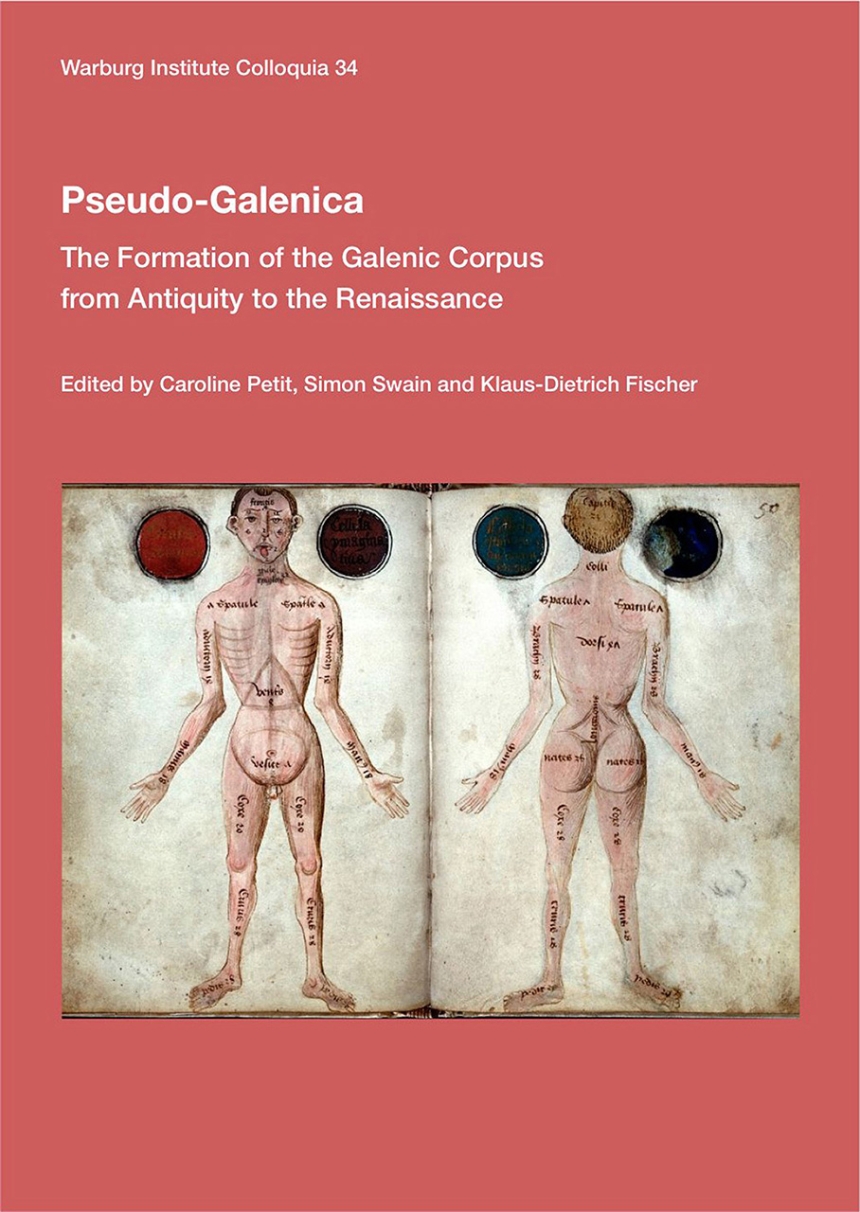Pseudo-Galenica
The Formation of the Galenic Corpus from Antiquity to the Renaissance
Distributed for University of London Press
Pseudo-Galenica
The Formation of the Galenic Corpus from Antiquity to the Renaissance
The works of Galen of Pergamum (c. 129-216 CE) were fundamental in the shaping of medicine, philosophy, and neighboring areas of knowledge from antiquity through to the middle ages and early modern times, across a variety of languages and cultures. Yet as early as Galen’s own lifetime, spurious treatises crept into the body of his authentic works, despite his best efforts to provide the public with a catalogue of his own production (De libris propriis). For centuries, readers and scholars have used a fluid body of Galenic works, shaped by changing intellectual frameworks and social-cultural contexts. Several inauthentic works have enjoyed remarkable popularity, but this has had consequences in modern scholarship. The current reference edition of Galenic works (Kühn, 1821-1833) fails to distinguish clearly between authentic and inauthentic texts, and many works lack any critical study, which makes navigating the corpus unusually difficult. This new volume, arising from a conference held in 2015 at the Warburg Institute at the University of London and funded by the Wellcome Trust, will provide much-needed clarification about the boundaries of the Galenic corpus, identifying and analyzing the works that do not genuinely belong to Galen’s production.
Table of Contents
by Caroline Petit
2. Three Pseudo-Galenic Texts: Pharmacology and Society in Imperial Rome
by Vivian Nutton
3. Is the Theriac to Piso Attributed to Galen Authentic?
by Véronique Boudon-Millot
4. Sur la langue du traité De Theriaca ad Pisonem attribué à Galien de Pergame
by Nathalie Rousseau
5. Easy Remedies - Difficult Texts: The Pseudo-Galenic Euporista
by Laurence Totelin
6. Les manuscrits des Definitiones medicae pseudo-galéniques
by Marie Cronier
7. Four Works on Prognostic Attributed to Galen (Kühn vol. 19): New Hypotheses on Their Authorship, Transmission, and Intellectual Milieu
by Caroline Petit
8. Pseudonymity and Pseudo-Galen in the Syriac Tradition
by Siam Bhayro
9. Nicolaus of Rhegium as a Translator of Galen’s Works into Latin: The Case of the Historia philosopha
by Mareike Jas
10. Pseudo-Galenic Texts on Urines and Pulse in Late Byzantium
by Petros Bouras-Vallianatos
11. (Pseudo?-)Galen: About the Authenticity of Galen’s Perì alypías in Medieval Hebrew, Compared to the Recently Found Greek Text
by Mauro Zonta†
12. Alessandro Achillini and the 1502 Galen Opera Omnia: The Influence of Pseudo-Galenic Sources on Early Sixteenth-Century Anatomy
by Allen Shotwell
13. Pseudo-Galenic Texts in Galen’s Editions (1490-1625)
by Stefania Fortuna
14. Commentariis in Hippocratis librum Epidemiarum II uti non licet: G. B. Rasario and the False ‘Galenic’ Commentary on Epidemics II
by Christina Savino
15. La fortune du De spermate dans les éditions imprimées de Galien du XVIe au XVIIe
by Outi Merisalo

